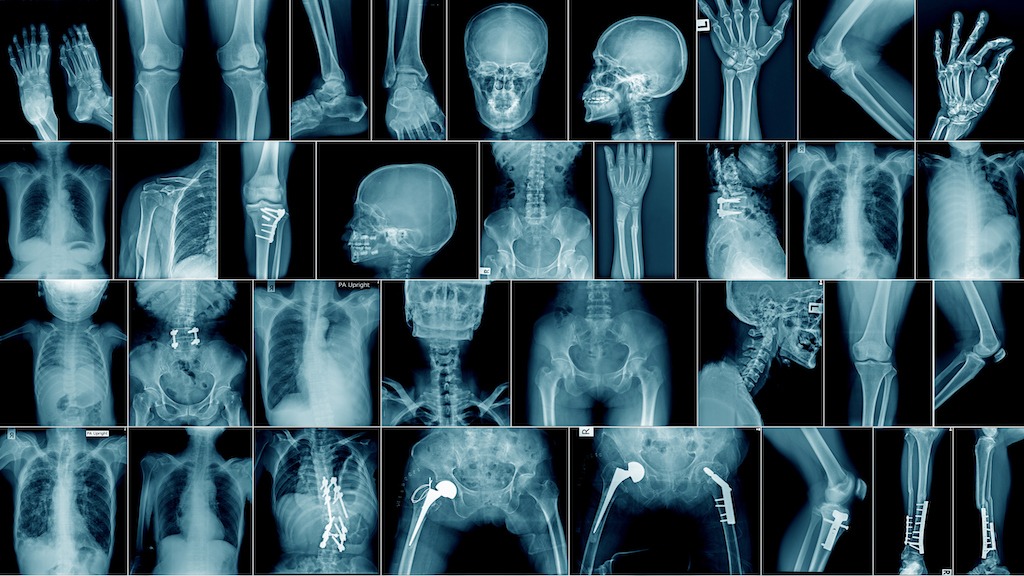Well tomorrow is Christmas Eve, so today we will explore the Etymology of the word Christmas. Yesterday we looked at the Etymology of the word Holiday that stands for Holy Day. Now on to Christmas! The following is from etymonline.com about the word Christmas:
"Christmas (n.)
"Church festival observed annually in memory of the birth of Christ," late Old English Cristes mæsse, from Christ (and retaining the original vowel sound) + mass (n.2).
Written as one word from mid-14c. As a verb, "to celebrate Christmas," from 1590s. Father Christmas is attested in a carol attributed to Richard Smart, Rector of Plymtree (Devon) from 1435-77. Christmas-tree in the modern sense is attested by 1835 in American English, rendering German Weihnachtsbaum. Christmas cards were first designed in 1843, popular by 1860s; the phrase Christmas-card was in use by 1850. Christmas present is from 1769. Christmas Eve is Middle English Cristenmesse Even (c. 1300)."
We have another perspective presented to us from celebratingholidays.com:
"The Name Christmas
By the Middle Ages, Christians were celebrating the remarkable event of Jesus’ birth with an extended season that began with Advent (four Sundays before Christmas) and continued for the 12 Days after Christmas (up until Epiphany on January 6th). The time preceding Christmas used to be a solemn time of fasting, whereas the days after Christmas were the time of celebration. Christians looked forward to the Midnight Mass of Christmas Eve with great anticipation, because it was the service that marked the transition from fasting to feasting. This service, known as “Christ’s Mass,” eventually became a description for celebrations of Jesus’ birth throughout the world. The word Christmas has its origin from the old English term Cristes Maesse, meaning “Christ’s Mass.”1
Though the word Christ is commonly used as Jesus’ name, it is actually a title. It comes from a Greek word that means “Anointed One” (the Hebrew word is “Messiah” — a term that Old Testament prophets used to describe the coming Savior). It should be noted that the abbreviated term Xmas does not necessarily take the “Christ” out of Christmas. The first letter of the Greek word for Christ (Χριστός) is “X” (pronounced “kai” in Greek), and it has been used throughout history to represent Jesus’ title.
The word Mass comes from the Latin word missa, which means “dismissal.” During the Middle Ages, the term became a general description for the Eucharistic service (the bread and wine of which Christians partook in remembrance of the body and blood of Jesus).2 The word gives insight into how medieval Christians understood at least one of the significant aspects of the Eucharist — they gathered together to remember the body (and great sacrifice of Christ), so that they would be strengthened to go (or more specifically, be “dismissed”) back into the world to BE he body of Christ. The apostle Paul told of this mystery when he wrote to believers in Corinth, “Now you are the body of Christ, and each of you is a part of it” (1 Corinthians 12:27)."
Finally we have this definition of the work Christmas from gotquestions.org:
"What is the origin of Christmas?
Christmas is a popular December holiday celebrated by large numbers of people all around the world. Christmas (or “the Mass of Christ”) has long been known as the celebration of the birth of Jesus Christ, and the celebration first began to be observed in the early fourth century. However, some traditions associated with Christmas actually began as a part of pagan culture; these were “Christianized” and given new meaning by the church.
The exact date of Jesus’ birth is unknown, as the Bible does not give specifics as to the dates of either His birth or conception. But in the second century AD, a Roman Christian historian named Sextus Julius Africanus calculated Jesus’ birthdate to be December 25 (nine months after Jesus was conceived, according to Africanus). In spite of the assumptions made in Africanus’s line of thinking, the date of December 25 was widely accepted.
At the time of Christ, Roman culture already celebrated a holiday in December: Saturnalia honored the god Saturn and was celebrated from December 17 to about December 24. Later, the Romans began celebrating Sol Invictus or the “Unconquered Sun,” associated with the winter solstice and observed on December 25. When Rome eventually instituted Christianity as the state religion in the fourth century, the Roman church converted Saturnalia and Sol Invictus to a Christian holiday, the Feast of the Nativity, in order to commemorate Jesus’ birth, thus providing a spiritually positive alternative to a pagan celebration. The sinful customs and debauchery associated with Saturnalia were “cleaned up,” and some of the customs were absorbed into the celebration of Christmas. Christians have “redeemed” December 25 and have celebrated it as the birth of Christ ever since the fourth century.
Given the association Christmas had with the ancient pagan calendar, the question then becomes, “Since Christmas shares a date with a pagan holiday, is it acceptable for Christians to celebrate it?” It is important to note that Christmas, Saturnalia, and Sol Invictus were all distinct holidays; they were never identical to each other. Also, although some elements of Christmas celebrations (e.g., bells, candles, holly, and yule decorations) are mentioned in the history of pagan worship, the use of such items in one’s home in no way indicates a return to paganism. Christians simply celebrate Christmas to remember the birth of our Lord and Savior, Jesus Christ. Celebrating Christmas is a matter of conscience (see Romans 14:5).
"
So as you can see the common meaning is a celebration of the birth of Jesus Christ. Thou as pointed out in the last reference when this birth was it not known. As noted in this article the December dates were Pegan in nature to start and once Rome Converted to Christianity this become "Feast of the Nativity". After removing the Pegan aspects the calibration of the Birth of Jesus was set forth. Some of the customs we use today were Pegan at the start, but has been repurposed to Christianity. As noted, elements of Christmas celebrations (e.g., bells, candles, holly, and yule decorations) are mentioned in the history of pagan worship, the use of such items in one’s home in no way indicates a return to paganism. In fact for me as a Buddhist these are still lovely reminders of Jesus Christ and his teaching of wisdom and love. I still celebrate Christmas with the Christians because Jesus Christ was a very Enlighted bean that preached of love and forgiveness that even Buddhists also believe. Plus it is fun to give gifts to friends and family showing that you love them and care. Tomorrow on Christmas Eve we will look at Pets and Christmas! Some laughs are Awwww's coming to you tomorrow. Stay tuned!
Have a Merry Christmas!
References:
1. https://www.etymonline.com/search?page=1&q=christmas&type=
2. https://www.celebratingholidays.com/?page_id=996
3. https://www.gotquestions.org/Christmas-origin.html
I have lost a lot of faith with the Medical Community and the Governments over the last several years, but there are a few good things that can raise above the corruption and the pushing of drugs a new approach to heal people. The following is from www.gaia.com and written by Hunter Parsons that does not involve any drug or pushing an ineffective so called vaccine that the drug company is not held accountable in any way but they use sound! The use of sound can regrow bone tissue! Here is the story:
"The future of regenerative medicine could be found within sound healing by regrowing bone cells with sound waves.
The use of sound as a healing modality has an ancient tradition all over the world. The ancient Greeks used sound to cure mental disorders; Australian Aborigines reportedly use the didgeridoo to heal; and Tibetan or Himalayan singing bowls were, and still are, used for spiritual healing ceremonies.
Recently, a study showed an hour-long sound bowl meditation reduced anger, fatigue, anxiety, and ...
Not a fan of a Defense Agency studying Anti-Gravity and other Exotic Tech, but if the commercial world and make this technology cheap that will change our world yet again. The following is about three minute read and from www.gaia.com. The below was written by Hunter Parsons:
"Wormholes, invisibility cloaks, and anti-gravity — it’s not science fiction, it’s just some of the exotic things the U.S. government has been researching.
A massive document dump by the Defense Intelligence Agency shows some of the wild research projects the United States government was, at least, funding through the Advanced Aerospace Threat Identification Program known as AATIP.
And another lesser-known entity called the Advanced Aerospace Weapons System Application Program or AAWSAP
The Defense Intelligence Agency has recently released a large number of documents to different news outlets and individuals who have filed Freedom of Information Act requests.
Of particular interest are some 1,600 pages released to Vice News, which ...
As our technology gets better we are discovering more about the history of mankind and pushing the timeline back further and further. The following article is from www.gaia.com and written by Michael Chary that discusses this new find that changes the historical timeline:
"Over the past decade, there have been a number of archeological revelations pushing back the timeline of human evolution and our ancient ancestors’ various diasporas. Initially, these discoveries elicit some resistance as archeologists bemoan the daunting prospect of rewriting the history books, though once enough evidence is presented to established institutions, a new chronology becomes accepted.
But this really only pertains to the era of human development that predates civilization — the epochs of our past in which we were merely hunter-gatherers and nomads roaming the savannahs. Try challenging the consensus timeline of human civilization and it’s likely you’ll be met with derision and rigidity.
Conversely, someone of an alternative...
Not sure if you have heard of a show on YouTube called "The Why Files". If not you should check it out it is interesting and has some humor with it on different subjects. Last weeks was on a different theory how the Universe works and how main stream Science is attempting to shut it down like is always seems to do if it goes aguest some special interest. Today it is akin to what happened to those who questioned the Earth was the Center of the Universe that main stream so called Science all believed during the Renaissance period, They called any theory that the Earth was not the Center of the Universe misinformation. Does this sound familiar today? People laughed and mocked people like Leonardo da Vinci, Nicolaus Copernicus, Georg Purbach as crack-pots, conspiracy theorists, nut-jobs and they were suppressed and even imprisoned for their radical thoughts and observations. Again it sounds like today in so many ways. In any event this is a good one to ponder and see even if a bad idea ...
Seemingly chaotic systems like the weather and the financial markets are governed by the laws of chaos theory.
We all have heard about chaos theory, but if you have not or have forgotten what chaos theory is well here you go from interestingengineering.com:
"Chaos theory deals with dynamic systems, which are highly sensitive to initial conditions, making it almost impossible to track the resulting unpredictable behavior. Chaos theory seeks to find patterns in systems that appear random, such as weather, fluid turbulence, and the stock market.
Since the smallest of changes can lead to vastly different outcomes, the long-term behavior of chaotic systems is difficult to predict despite their inherently deterministic nature.
As Edward Lorenz, who first proposed what became commonly known as the Butterfly Effect, eloquently said, "Chaos: When the present determines the future, but the approximate present does not approximately determine the future.""
You may have heard the term about chaos theory as a butterfly flaps its wings in Brazil,...
I for one have lost trust in Medical Doctors due to COVID and reflection that they seem to push pills for everything and untested so called vaccines that is using a unproven technology because the Government and the Medical Boards of the State told them to. There are a very few exceptions. Thus they do not address the key problem just prescribe more and more pills to keep you alive an sick longer for them and Big Phama to profit from you. Will AI do any better? Well that depends on what was used for the training of AI. If it also pushes pills and vaccines without question then you have the same problems noted above. However, if the AI Training includes all possible forms of treatment and they zero in on the right issues for the true problem then there is possibilities they would be way better than most of the current Medical Doctors today.
The following is from an article from interestingengineering.com and written by Paul Ratner:
"A new study looks at how accurately AI can diagnose patients. We interview the researcher, who weighs in on AI's role ...
























